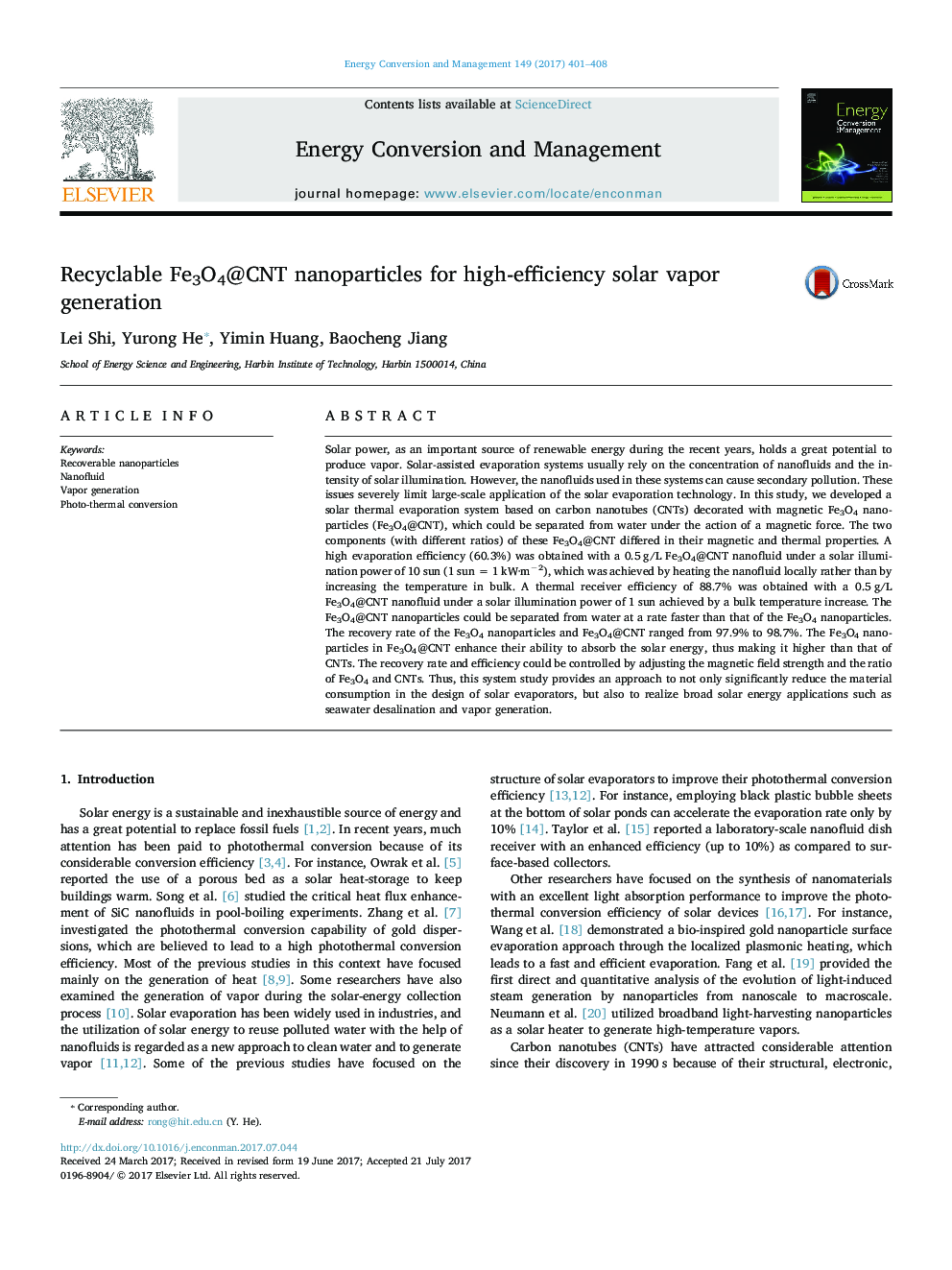| Article ID | Journal | Published Year | Pages | File Type |
|---|---|---|---|---|
| 5012405 | Energy Conversion and Management | 2017 | 8 Pages |
Abstract
Solar power, as an important source of renewable energy during the recent years, holds a great potential to produce vapor. Solar-assisted evaporation systems usually rely on the concentration of nanofluids and the intensity of solar illumination. However, the nanofluids used in these systems can cause secondary pollution. These issues severely limit large-scale application of the solar evaporation technology. In this study, we developed a solar thermal evaporation system based on carbon nanotubes (CNTs) decorated with magnetic Fe3O4 nanoparticles (Fe3O4@CNT), which could be separated from water under the action of a magnetic force. The two components (with different ratios) of these Fe3O4@CNT differed in their magnetic and thermal properties. A high evaporation efficiency (60.3%) was obtained with a 0.5 g/L Fe3O4@CNT nanofluid under a solar illumination power of 10 sun (1 sun = 1 kW·mâ2), which was achieved by heating the nanofluid locally rather than by increasing the temperature in bulk. A thermal receiver efficiency of 88.7% was obtained with a 0.5 g/L Fe3O4@CNT nanofluid under a solar illumination power of 1 sun achieved by a bulk temperature increase. The Fe3O4@CNT nanoparticles could be separated from water at a rate faster than that of the Fe3O4 nanoparticles. The recovery rate of the Fe3O4 nanoparticles and Fe3O4@CNT ranged from 97.9% to 98.7%. The Fe3O4 nanoparticles in Fe3O4@CNT enhance their ability to absorb the solar energy, thus making it higher than that of CNTs. The recovery rate and efficiency could be controlled by adjusting the magnetic field strength and the ratio of Fe3O4 and CNTs. Thus, this system study provides an approach to not only significantly reduce the material consumption in the design of solar evaporators, but also to realize broad solar energy applications such as seawater desalination and vapor generation.
Related Topics
Physical Sciences and Engineering
Energy
Energy (General)
Authors
Lei Shi, Yurong He, Yimin Huang, Baocheng Jiang,
